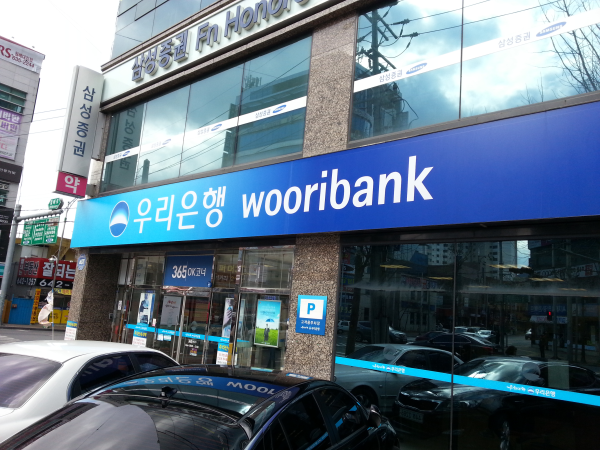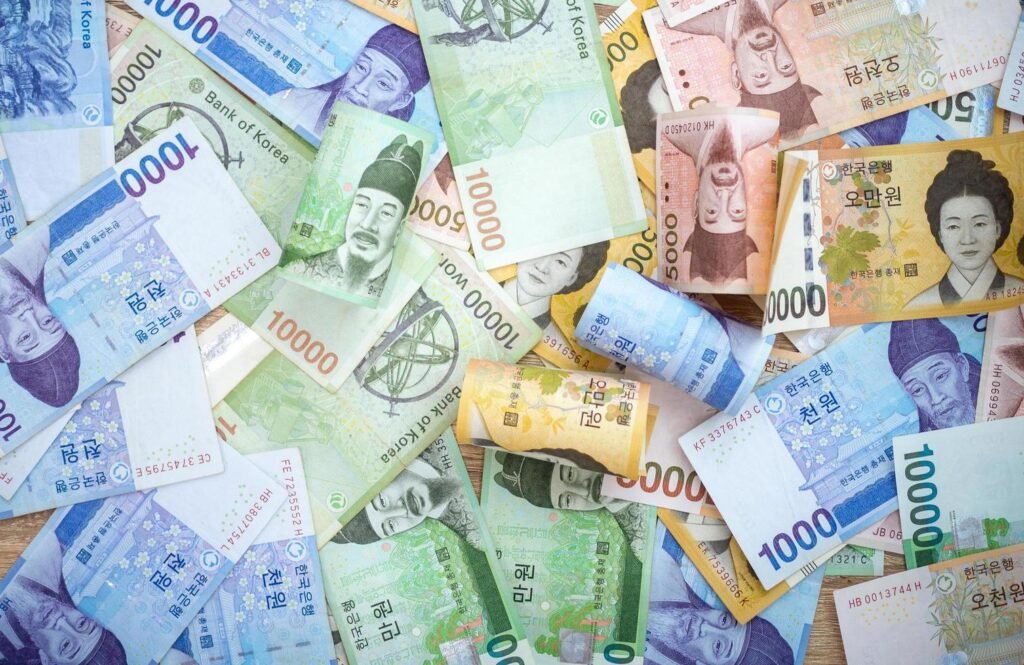outh Korea, a country known for its rapid technological advancement and vibrant culture, has also developed a sophisticated and dynamic financial system. From its banking sector to its stock exchange, and its role in global finance, South Korea’s financial landscape reflects both its economic success and its unique challenges. This article delves into the intricacies of Korean finance, exploring its major components, regulatory frameworks, and the impact of global trends on its economy.
The Evolution of South Korea’s Financial Sector
South Korea’s financial sector has undergone significant transformations over the decades, evolving from a state-controlled system to a more liberalized and competitive market. Post the Korean War, the financial sector was largely dominated by state-owned banks with limited foreign influence. However, with the liberalization policies introduced in the 1990s and the subsequent economic reforms, the landscape began to change dramatically.

The Asian Financial Crisis of 1997-1998 was a pivotal moment that reshaped the South Korean financial system. The crisis exposed vulnerabilities in the financial sector, leading to a series of reforms aimed at increasing transparency, enhancing regulatory oversight, and reducing the risk of financial instability. These reforms included the restructuring of financial institutions, the introduction of stricter regulatory measures, and the strengthening of corporate governance.
The Role of Major Financial Institutions
The backbone of South Korea’s financial system is its banking sector, which comprises a mix of commercial banks, specialized banks, and foreign banks. The four major commercial banks—KB Kookmin Bank, Shinhan Bank, Woori Bank, and Hana Bank—play a central role in the economy, providing a wide range of financial services including retail banking, corporate finance, and investment services.

KB Kookmin Bank, established in 2001 from the merger of Kookmin Bank and the Korean Federation of Banks, is the largest financial institution in South Korea in terms of assets. It offers a comprehensive suite of services from savings and loans to wealth management and insurance. Similarly, Shinhan Bank, part of the Shinhan Financial Group, is known for its strong retail and corporate banking services.
Specialized banks, such as the Korea Development Bank (KDB) and the Export-Import Bank of Korea (KEXIM), focus on developmental and international trade finance. The KDB plays a crucial role in supporting industrial and infrastructure development, while KEXIM provides financing for export and import activities, enhancing South Korea’s global trade relationships.
Foreign banks also have a significant presence in South Korea, contributing to the competitive dynamics of the market. These institutions not only bring global best practices but also offer diverse financial products and services that cater to international clients and expatriates.
The Stock Market and Capital Markets
The South Korean stock market, primarily represented by the Korea Exchange (KRX), is a vital component of the country’s financial system. The KRX operates three main markets: the KOSPI (Korea Composite Stock Price Index), the KOSDAQ (Korea Securities Dealers Automated Quotations), and the KONEX (Korea New Exchange).

The KOSPI, established in 1983, is the main stock index that includes the largest and most established companies in South Korea. It serves as a benchmark for the overall performance of the South Korean economy and reflects the performance of blue-chip stocks. Major corporations listed on the KOSPI include Samsung Electronics, Hyundai Motor Company, and LG Electronics. These companies are not only significant players in the Korean economy but also have a substantial impact on global markets due to their international operations.
The KOSDAQ, on the other hand, is known for its focus on small and medium-sized enterprises (SMEs) and technology-driven companies. It provides a platform for emerging businesses to raise capital and grow, fostering innovation and entrepreneurship. The KONEX, introduced in 2013, is designed to support the financing needs of start-ups and small firms with high growth potential.
The South Korean capital markets are characterized by high liquidity and investor participation. Institutional investors, including pension funds and insurance companies, play a crucial role in providing stability and long-term capital. At the same time, retail investors contribute significantly to market liquidity, reflecting a strong culture of individual investment in South Korea.
Financial Regulation and Governance
South Korea’s financial regulatory framework is designed to ensure stability, transparency, and integrity in the financial system. The Financial Services Commission (FSC) is the primary regulatory body responsible for overseeing the financial sector. It formulates and enforces policies related to banking, securities, insurance, and other financial activities.

The Financial Supervisory Service (FSS), an affiliated institution of the FSC, is responsible for the day-to-day supervision and examination of financial institutions. Its role includes monitoring compliance with regulations, conducting audits, and investigating potential financial misconduct.
In recent years, South Korea has focused on enhancing regulatory measures to address emerging risks and challenges. This includes measures to improve corporate governance, combat financial crimes, and strengthen consumer protection. The implementation of international standards, such as those set by the Basel Committee on Banking Supervision, reflects South Korea’s commitment to aligning its financial practices with global norms.
The introduction of the Financial Consumer Protection Act in 2020 represents a significant step toward safeguarding consumers’ interests. This legislation aims to enhance transparency in financial products, provide better protection against unfair practices, and establish a dedicated consumer protection agency to address grievances and disputes.
The Impact of Global Trends
South Korea’s financial system is closely intertwined with global financial markets, and international trends have a significant impact on its economy. The country’s openness to global trade and investment makes it susceptible to global economic fluctuations and financial developments.

The integration of South Korea’s financial markets with global capital flows has led to increased foreign investment in Korean assets. Foreign investors play a crucial role in the Korean stock market and bond market, contributing to market liquidity and price discovery. However, this also exposes the market to potential volatility arising from global economic uncertainties or geopolitical tensions.
The rise of digital finance and fintech is another global trend shaping South Korea’s financial landscape. South Korea has been at the forefront of adopting digital technologies, with a high level of digital literacy and infrastructure. The growth of fintech companies, offering innovative solutions such as mobile payments, blockchain technology, and robo-advisors, is transforming traditional financial services and creating new opportunities for consumers and businesses alike.
The South Korean government and financial institutions are actively supporting the development of fintech through regulatory frameworks and innovation hubs. Initiatives such as the Financial Innovation Sandbox allow fintech firms to test new technologies and business models in a controlled environment, fostering innovation while ensuring regulatory compliance.
Challenges and Opportunities
While South Korea’s financial sector has achieved considerable success, it faces several challenges and opportunities as it navigates an ever-changing global landscape. One of the key challenges is managing financial risks associated with economic fluctuations and geopolitical uncertainties. The global economic environment, including trade tensions, interest rate changes, and geopolitical developments, can impact South Korea’s financial stability and market performance.

The aging population is another significant challenge, affecting both the financial sector and the broader economy. As the demographic profile shifts, there is increased pressure on pension systems, healthcare services, and savings rates. Financial institutions are adapting to these demographic changes by offering tailored financial products and services to meet the needs of an older population.
On the other hand, South Korea’s strengths in technology and innovation present significant opportunities for growth. The continued development of digital finance and fintech, coupled with the government’s support for innovation, positions South Korea as a leader in the global financial technology space. Additionally, the country’s strategic location in East Asia and its strong trade relationships offer opportunities for expanding its role as a financial hub in the region.
Conclusion: A Dynamic Financial Landscape
South Korea’s financial sector is a testament to the country’s economic progress and adaptability. From its robust banking system to its active capital markets and evolving regulatory environment, the financial landscape reflects a nation that is both resilient and forward-thinking. As South Korea continues to navigate global trends and address domestic challenges, its financial sector will remain a crucial driver of economic growth and innovation.
Whether you are an investor, a financial professional, or simply interested in global finance, understanding South Korea’s financial system provides valuable insights into the complexities and opportunities of one of Asia’s most dynamic economies. The interplay between tradition and modernity, coupled with the impact of global developments, makes South Korea’s financial landscape a fascinating area of study and exploration.